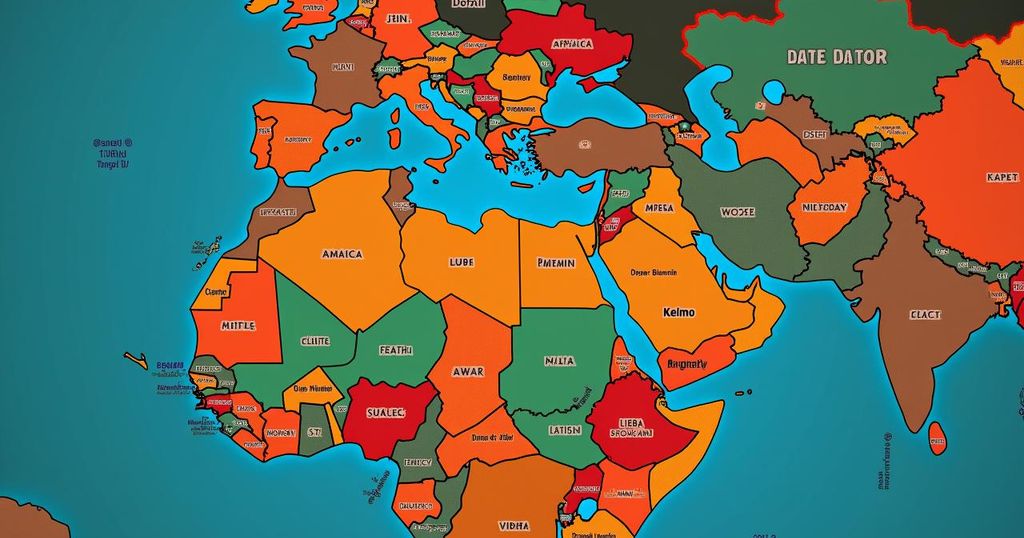2018 Review: Key African News Highlights by Country
The 2018 Review from Africanews highlights key news events across Africa, from politics and economics to major social issues. Countries from Djibouti to Guinea-Bissau are assessed, reflecting on peace talks, elections, economic struggles, and strides in governance, particularly women’s representation. The review provides a structured overview of how each nation faced internal and external challenges throughout the year.
As the year 2018 concluded, Africanews’ digital team provided an analytical overview of significant news events throughout Africa, categorized by nation. The review encompassed various sectors including news, sports, business, science and technology, and culture, highlighting notable trends such as the recognition of influential women, peace agreements, international relations, and summaries of presidential elections. Each country from Djibouti to Guinea-Bissau was evaluated with at least three major news items reflecting how they addressed domestic, neighboring, and global issues. Djibouti engaged in peace negotiations with Eritrea and launched a $3.5 billion free trade zone developed by China. The Democratic Republic of Congo faced political unrest as President Kabila agreed to resign amid protests and an escalating Ebola outbreak, which was met by swift intervention from the WHO. Egypt witnessed President Al-Sisi’s re-election amidst significant security challenges, particularly concerning attacks on Coptic Christians and ongoing discussions over the Grand Ethiopian Renaissance Dam. Eritrea made strides by establishing peace with Ethiopia, leading to the lifting of UN sanctions, while re-engaging with international powers. Ethiopia’s Prime Minister Abiy Ahmed initiated sweeping reforms, improving the political landscape and championing women’s representation in government. In Equatorial Guinea, a coup attempt was reported earlier in the year, and Vice President Teodorin was detained amid financial scandals. Gabon dealt with President Bongo’s health crisis, leading to postponed legislative elections and the cessation of an ICC investigation into election-related violence. Gambia focused on post-Jammeh recovery efforts, marked by new appointments and a return to the Commonwealth. Ghana mourned the loss of Kofi Annan, addressing corruption in its football association while facing public protests regarding a military cooperation agreement with the U.S. Guinea dealt with anti-government protests driven by economic grievances and corruption allegations involving foreign corporations. Finally, Guinea-Bissau continued to struggle with political instability, leading to sanctions from ECOWAS and further unrest among public sector workers.
The article provides a comprehensive retrospective of key events that shaped various African nations in the year 2018. By examining political developments, social issues, and international relations, the review offers insights into how each country navigated challenges and opportunities throughout the year. Events are presented in an organized manner, categorized alphabetically by country, enabling readers to easily understand the regional dynamics. This encapsulation not only reflects the political landscape but also sheds light on pressing economic and social matters that affected the citizens of these nations.
In summary, the 2018 Review features significant developments across African nations from Djibouti to Guinea-Bissau, emphasizing political transitions, economic advancements, and social challenges. Key themes included international diplomacy, domestic unrest, and strides in women’s representation, collectively illustrating a year of both progress and challenges across the continent.
Original Source: www.africanews.com




Post Comment